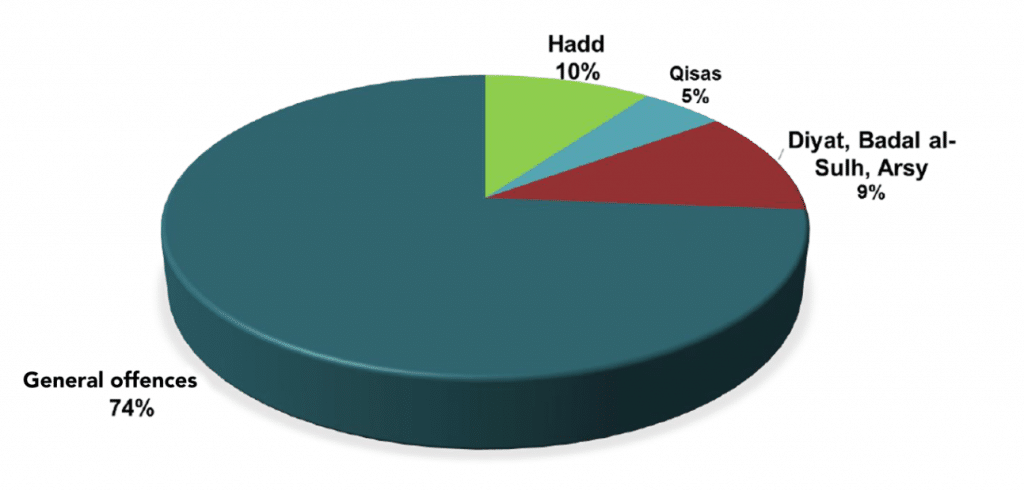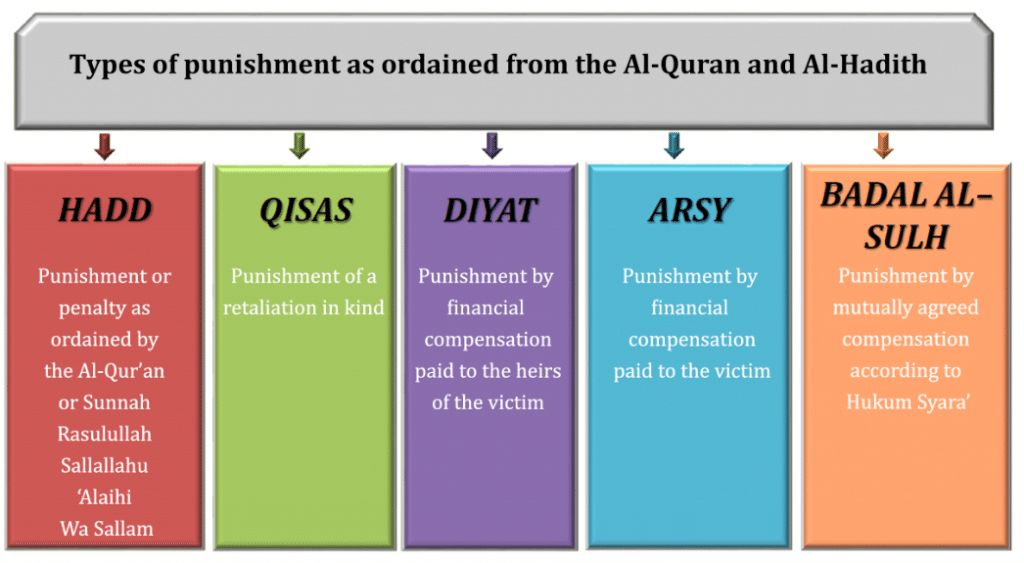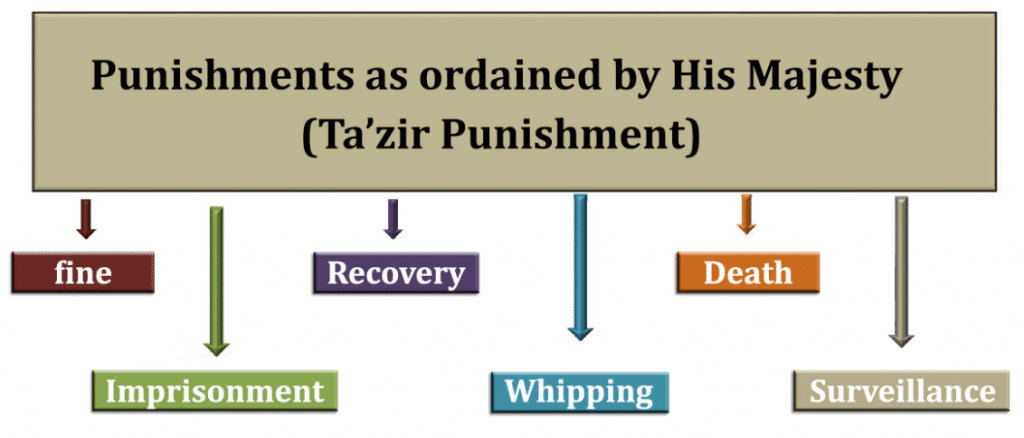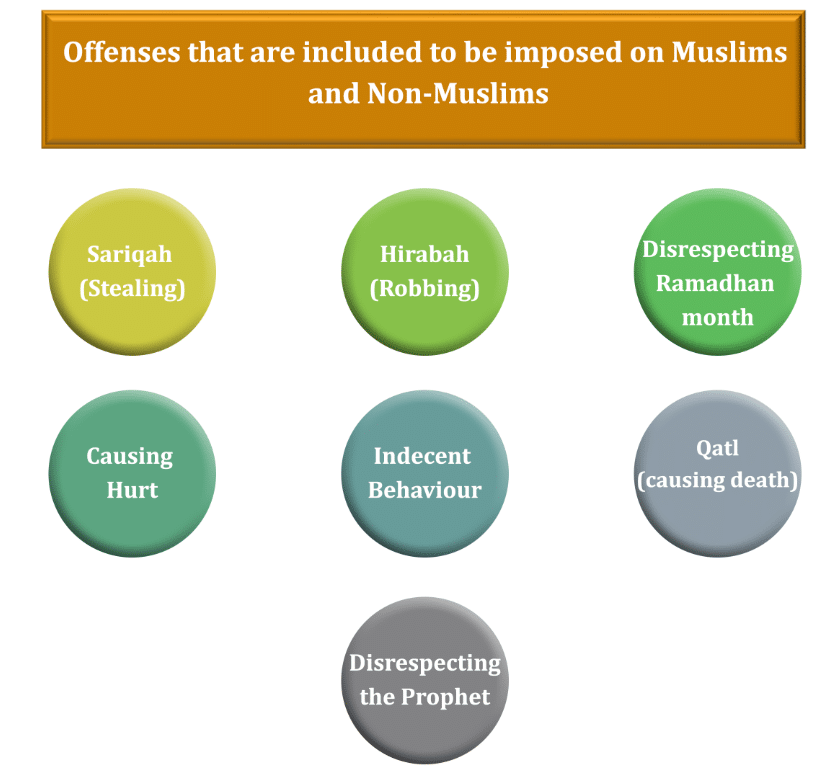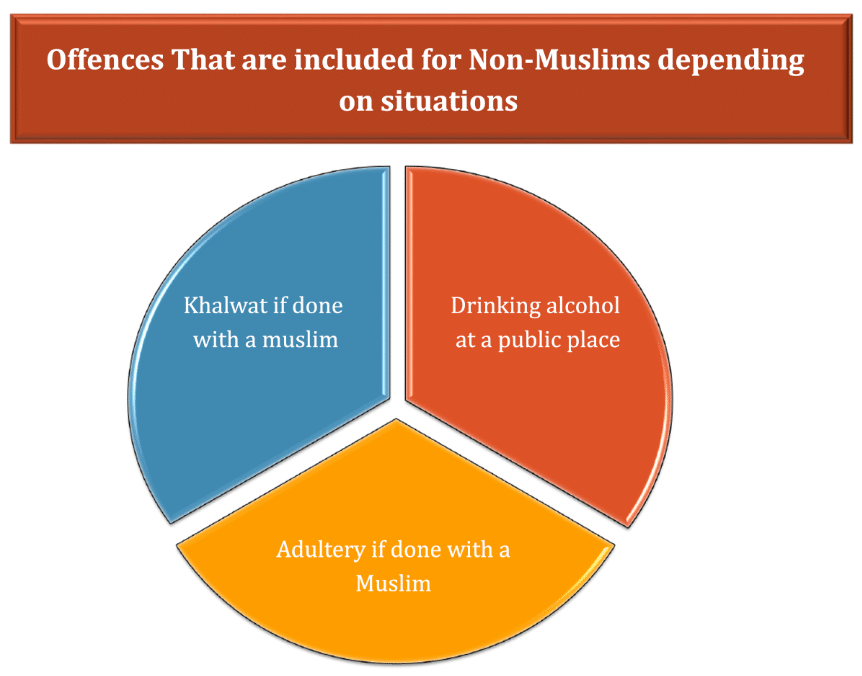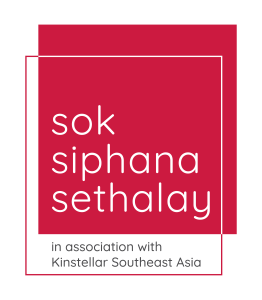Brunei | Enforcement of Syariah Laws in Brunei Darussalam
In October 2013, the Sultan of Brunei declared that Brunei will implement Syariah Laws. The implementation of Syariah Law would be in 3 phases:-
| Phase 1 (came into force on 1 May 2014) | This phase concerns all the offences found under Part IV Chapter IV that are punishable only by fine or imprisonment e.g. failure to perform Friday prayer, disrespecting the month of Ramadhan etc. |
| Phase 2 (came into force on 1 January 2019) | The enforcement of all provisions under Part IV Chapter I,II and III that are punishable by Hadd, Qisas, Diyat, Badal – Al-Sulh or Arsy, except offences punishable by death. |
| Phase 3 (came into force on 3 April 2019) | Full adoption and enforcement of Syahiah Penal Code (“SPC”). |
To illustrate the various offences prescribed by the SPC please refer to the charts and diagrams below:-
Fig.1.0: Percentage allocation for offences under Syariah Criminal Procedure Code
(Source: Ministry of Religious Affairs, “HALAQAH presentation.pdf”)
Fig. 1.1: Types of offences
(Source: Ministry of Religious Affairs, “HALAQAH presentation.pdf”)
Fig. 1.2: Types of Punishment
(Source: Ministry of Religious Affairs, “HALAQAH presentation.pdf”)
Fig.1.3: Punishment under Ta’zir
(Source: Ministry of Religious Affairs, “HALAQAH presentation.pdf”)
Fig. 1.4: Offences that are included for Non-Muslims and Muslims
(Source: Ministry of Religious Affairs, “HALAQAH presentation.pdf”)
Fig.1.5: Offences that are included for Non-Muslims depending on situation
(Source: Ministry of Religious Affairs, “HALAQAH presentation.pdf”)
The Brunei Government through their second Minister of Foreign Affairs provided a response to the Office of the High Commissioner for Human Rights (OHCHR) (See here). In summary, His Excellency’s response is highlighted below:-
“The Syariah Penal Code Order does not criminalise nor has any intention to victimise a person’s status based on sexual orientation or belief, including same-sex relations. The criminalisation of adultery and sodomy is to safeguard the sanctity of family lineage and marriage of individual Muslims particularly women. The offences, therefore will not apply to non-Muslims unless the act of adultery or sodomy is committed with a Muslim.
The Government of Brunei Darussalam continuously protect the rights of women. Women in Brunei Darussalam are given equal opportunities among others in education, training, healthcare, and employment, ownership of assets, benefits and citizenship. The Syariah Penal Code Order also protects women from slanderous accusations of adultery as such accusations are considered a serious criminal offence. It must be noted that women in Brunei Darussalam made significant achievements not only in education and business but also professions.
We would like to reiterate our commitment to international obligations in promoting and protecting human rights as enshrined in the Charter of the United Nations and the Universal Declaration of Human Right and will continue to uphold our obligations to international covenants on human rights including the CEDAW, Brunei Darussalam rejects all forms of torture, inhuman or degrading treatment or punishment. Finally, in our efforts to demonstrate further our commitment Brunei Darussalam is currently working towards advancing the necessary steps for early ratification of UNCAT.”
Emphasis and great care should be given to the “Principle of Syariah Law” rather than the “substance of the Syariah Law”. The critical debate towards the implementation of the Syariah Penal Code Order has been primarily focused on the principle of the law, whereby the attention should have been directed towards the substance, or reasoning of the law.
Any activities be it moral or immoral that are conducted within the private spaces is not under the purview of Syariah, and therefore not of the state either.
The legal principles mentioned an offence is committed when the act itself has become publicly visible to society and committed outside of the private or personal spaces in contempt of the norms and acceptance of a Muslim society.
On implementing the SPC on 3 April 2019, an ‘Assessment Committee’ was set up to review all criminal cases. Members of the Assessment Committee are officers from the Attorney General’s Chambers, Ministry of Religious Affairs, Syariah Prosecution Office and Royal Brunei Police Force. These members, upon referral of cases from the police, will assess the evidence and thereafter direct the case either to the Attorney General or Chief Syariah Prosecutor. In other words there is a “Two-Step Verification” before a case is referred and tried in the Syariah Courts. This procedure eliminates any concerns/doubts that the accused will be prejudiced from the implementation of the Syariah Penal Code.
The implementation of Syariah is meant to prevent what is not accepted in Brunei Darussalam, rather than to punish. The SPC will not be taken into consideration when done within the confinement of private space, it becomes an offence when done publicly within the viewing eyes of the society.
If you have any questions or require any additional information, please contact Mohamad Rozaiman Abdul Rahman of ZICO R.A.R (a member of ZICO Law).
This alert is for general information only and is not a substitute for legal advice.

